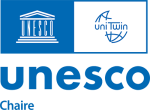
Since 2019, the FRQ have been providing financial support for UNESCO Chairs under a joint Declaration of Intent signed with the Canadian Commission for UNESCO (CCUNESCO). Here is a portrait of one of these Chairs, whose work is generating positive impacts for society.
UNESCO Chair: Early Childhood and Inclusive Early Intervention
Chairholder: Carmen Dionne, Université du Québec à Trois-Rivières
The UNESCO Chair in Early Childhood and Inclusive Early Intervention seeks to promote young children’s access to and participation in development activities appropriate to their needs and life contexts. It is interested, for example, in early screening approaches for developmental difficulties and assessment strategies that integrate the knowledge and observations of the child’s parents and relatives.
The Chair also analyses instruments that promote access and participation of all children in activities that support their development at home, in daycare settings and many other environments. The Chair’s work targets the following objectives: to train graduate students; to develop screening, assessment and intervention practices; to document the implementation of these practices; and to create a platform for exchange between inclusive early childhood care and education partners and for the general public.
One of the Chair’s recent projects concerns the contribution of digital technologies to social innovation for inclusive early childhood educational environments. Carried out with researchers from Senegal and Colombia, this three-country collaboration resulted in the production of ten informational videos on topics such as inclusion, children’s rights and needs, inclusive environments and resources, and community mothers. The texts reflect cutting-edge scientific knowledge while being adapted to the cultural realities of each country.
These educational videos will be made available to member researchers on the Chair’s website and may be shared under certain conditions. As with all the Chair’s work, the inter-country partnership was carried out in a spirit of co-construction of knowledge and sharing of expertise. The result is a more complete and nuanced interpretation of inclusion.

